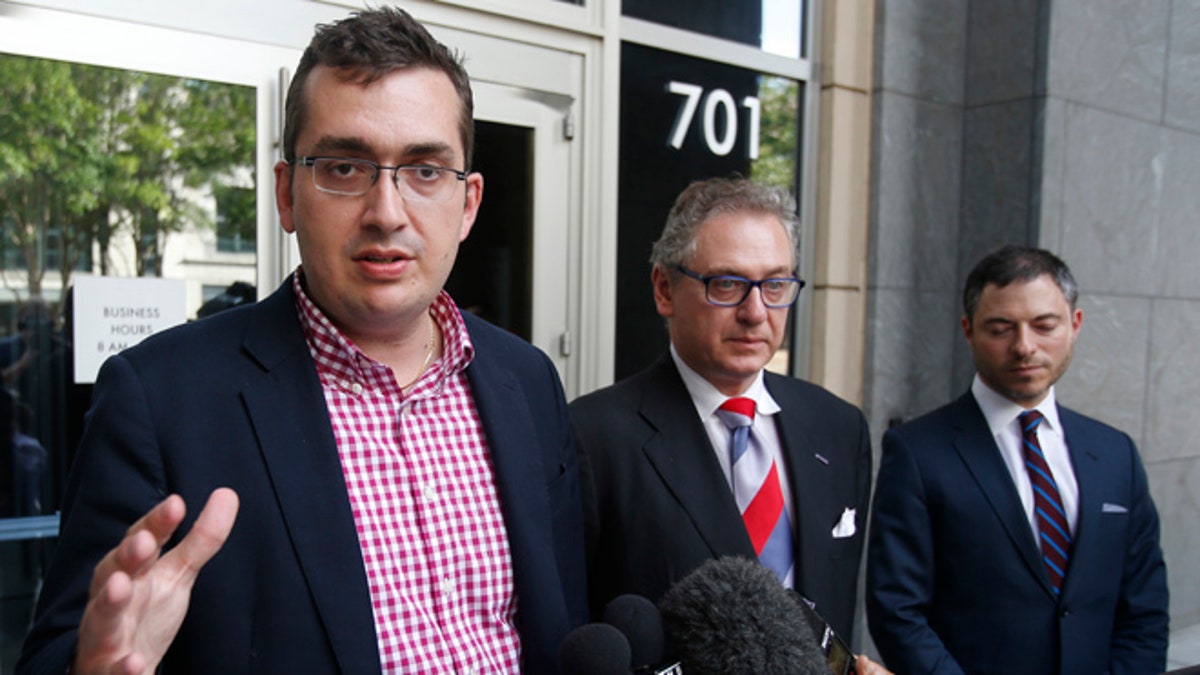
Virginia delegate to the Republican National Convention Carroll Correll, left, gestures as he talks with the media after a hearing on his lawsuit, in front of federal court in Richmond, Va., Thursday, July 7, 2016. (AP Photo/Steve Helber)
RICHMOND, Va. – An anti-Donald Trump delegate to the Republican National Committee convention won a small legal victory Monday he hopes will provide a boost to longshot efforts at derailing the billionaire businessman from formally clinching the GOP presidential nomination.
But the ruling issued Monday by a federal judge in Richmond is limited in scope. It means that delegates cannot be obligated to vote in a winner-takes-all fashion, as stated in an obscure portion of Virginia election law. But the law in question was so obscure that Republicans had already decided to allocate delegates in a proportional fashion, based on the results of the state's March 1 primary, which Trump won. The ruling leaves that unchanged.
Still, Virginia delegate Carroll Correll Jr., who filed the lawsuit last month, counted the ruling as a symbolic victory.
"Requiring delegates to vote for any candidate is unconstitutional and today's announcement is a blow to Trump's efforts," said Correll.
Correll's lawsuit was backed by Citizens in Charge Foundation, which is part of a diverse group of Trump opponents still trying to find a way for the party to pick another candidate at next week's convention.
But Trump supporters scoffed at the notion that the ruling will have any noticeable effect.
"It will have no impact on the Virginia delegation," said John Fredericks, a Trump supporter who fought the lawsuit. "Nor will it have any long term ramification for Donald Trump's quest for the nomination on the first ballot."
At issue in the lawsuit was a previously ignored part of Virginia election law that mandates delegates to the national convention to vote in a winner-take-all fashion, instead of proportionally as Republicans had planned. Judge Robert E. Payne said Monday the winner-take-all portion of the state law was unconstitutional and can't be enforced.
The ruling means that Republicans can vote how they have always intended to — with the state's 49 delegates bound to vote proportionally based on the March 1 results — without fear of criminal prosecution. Though the changes of prosecution were always remote: state officials said before the ruling they had no plans to prosecute anyone for how they voted at the GOP convention.
Trump won Virginia's March 1 primary with about 35 percent of the vote, netting 17 delegates during the first round of voting at the convention. Delegates are unbound if there is a second round of voting.
The Republican National Committee's convention is next week, and Trump is the party's presumptive nominee and only candidate still running.












































